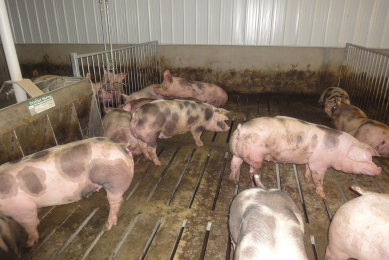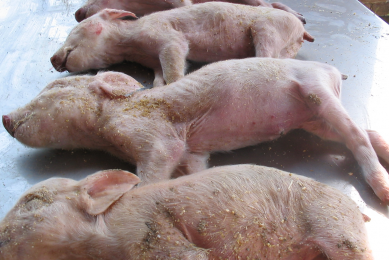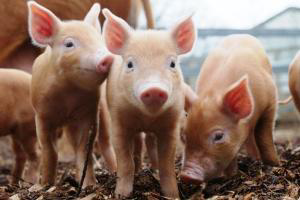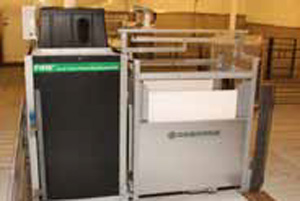Swine gut bacteria unite
Campylobacter jejuni and Campylobacter coli are exchanging genes by merging into a single species, scientists say.
Samuel Sheppard, an evolutionary microbiologist at Oxford University in the UK, together with his colleagues reached their conclusions by analysing DNA, or genetic information, from the bacteria found inside both wild and farm animals.
“What we’re seeing here is hybridisation, and it’s only been recently acknowledged as an important part of evolution,” said Sheppard.
Life Science reports that C. jejuni and C. coli are thought to have shared a common ancestor, or parent, in the ancient past. When the microbial descendent split up and evolutionary pressures stepped in, two new species began to take shape and fill different niches within the guts of wild pigs, chickens and other animals.
Despite sharing about 85% of their genetic code, the two microbes are strikingly different, says Sheppard, adding that the bacteria likely began reversing their growing divergence, or genetic separation, when human agriculture came along.
Intensive farming is the key
Sheppard feels that the bacterial merger has accelerated in recent years, as the demand for food has put pressure on farms to become more crowded. “We’re now really packing a bunch of livestock together, and so the bacterial environment is changed.”
“By altering their environment, we’re altering the bacteria, their very being,” says Sheppard, noting that chickens often mistake their feathered friends’ poop for food — and that creates a consistent, rapid way of mixing of two intestinal organisms that were once ecologically separated.
Sheppard explained that bacteria try and most often fail to trade genes, but when two descendants from the same parent meet and then mate, he said, the chance of successfully trading genes gets a boost. He couldn’t say when the two life forms might finally merge, but thinks evolutionary pressures created by humans will surely speed things up.
“The big message here is that we’re directly messing with species by messing with their natural environments,” Sheppard said.











